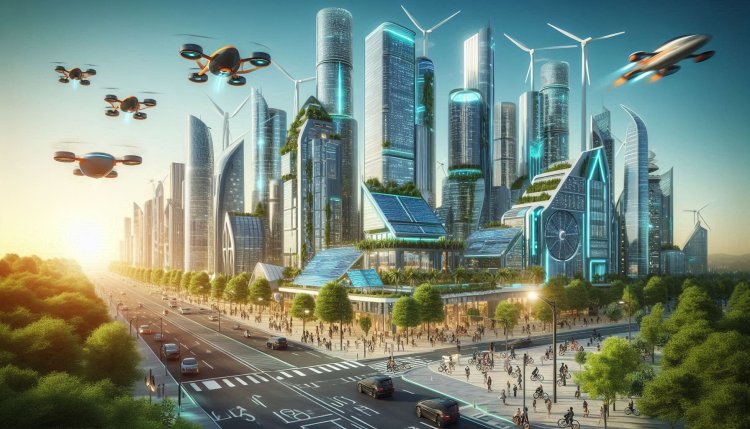Renewable Energy and the Future of Transportation
Discover the impact of renewable energy on the future of transportation. Learn how sustainable solutions are shaping the way we travel.

Renewable Energy and the Future of Transportation
In recent years, there has been a growing emphasis on the importance of renewable energy sources to combat climate change and reduce our dependence on fossil fuels. One of the key sectors where this transition is taking place is transportation. The future of transportation is closely linked to the development and adoption of renewable energy technologies, which offer a more sustainable and environmentally friendly way to power vehicles.
Electric Vehicles
Electric vehicles (EVs) are one of the most promising solutions for reducing greenhouse gas emissions from transportation. By using electricity stored in batteries to power the vehicle, EVs produce zero tailpipe emissions, making them a cleaner alternative to traditional gasoline-powered cars. The shift towards EVs is being accelerated by advancements in battery technology, which are making EVs more affordable, efficient, and practical for everyday use.
Solar and Wind-Powered Vehicles
Another exciting development in the transportation sector is the use of solar and wind energy to power vehicles. Solar-powered cars, for example, use photovoltaic cells to convert sunlight into electricity, which is then stored in batteries and used to drive the vehicle. Similarly, wind-powered vehicles harness the power of the wind to generate electricity, offering a renewable and sustainable way to travel.
Biofuels
Biofuels are another renewable energy source that is gaining popularity in the transportation sector. Made from organic materials such as crops, algae, or waste products, biofuels can be used to power vehicles in a more sustainable way compared to traditional gasoline or diesel fuels. Biofuels can help reduce greenhouse gas emissions and promote energy independence by diversifying the sources of fuel used in transportation.
Hydrogen Fuel Cells
Hydrogen fuel cells are another clean and efficient alternative for powering vehicles. By combining hydrogen and oxygen to produce electricity, hydrogen fuel cells can power electric motors without producing any harmful emissions. Hydrogen fuel cell vehicles have the advantage of quick refueling times and long driving ranges, making them a viable option for long-distance travel.
Infrastructure Challenges and Opportunities
While the shift towards renewable energy in transportation is promising, there are still challenges to overcome. One of the main challenges is the need for infrastructure development to support the widespread adoption of electric and other alternative fuel vehicles. This includes building charging stations for EVs, hydrogen refueling stations for fuel cell vehicles, and biofuel production facilities.
However, these challenges also present opportunities for innovation and investment in the renewable energy sector. Governments, businesses, and individuals can work together to create a sustainable transportation infrastructure that supports the transition to renewable energy sources.
The Role of Policy and Regulation
Policies and regulations play a crucial role in shaping the future of transportation and promoting the use of renewable energy sources. Governments around the world are implementing incentives and mandates to encourage the adoption of electric vehicles, biofuels, and other clean transportation technologies. By setting ambitious targets for reducing greenhouse gas emissions and investing in renewable energy infrastructure, policymakers can accelerate the transition to a more sustainable transport system.
Conclusion
The future of transportation is closely intertwined with the development and adoption of renewable energy technologies. Electric vehicles, solar and wind-powered vehicles, biofuels, and hydrogen fuel cells offer sustainable alternatives to traditional gasoline-powered cars, reducing greenhouse gas emissions and promoting energy independence.
While there are challenges to overcome, such as infrastructure development and policy implementation, the shift towards renewable energy in transportation presents exciting opportunities for innovation and investment in the clean energy sector. By working together to support the transition to renewable energy sources, we can create a more sustainable and environmentally friendly transportation system for future generations.
What's Your Reaction?

















